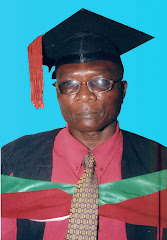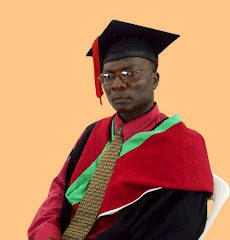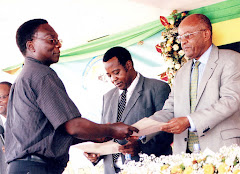President Jakaya Kikwete's strong condemnation of corruption on Thursday, has been welcomed by several commentators, but asked him to take concrete action to show his commitment to route out the vice. A cross section of political leaders and other analysts, said the President's stance would be strengthened and win support of pessimists if he links his words with swift action against anyone implicated in corruption. Mr Kikwete said on Thursday that the ongoing anti-corruption drive would remain high on the government's agenda if he will be re-elected in the forthcoming General Election in October.
The president was opening the annual conference of the Prevention and Combating of Corruption Bureau in Mwanza. He used the meeting to particularly emphasize his administration's resolve to adopt laws to combat electoral corruption and other practices that cost huge amounts in public funds at the expense of improving social services delivery. The president's tone was that of not tolerating any form of corruption in any sector and those linked to the vice, including the media, which he challenged not to use their power of the pen to defend their culpability. Yesterday, however, various interviewees explained that fighting corruption was not as simple as some people may think and that it was high time Mr Kikwete exercised his power by taking strong action against the suspects. The Karatu MP, Dr Willbroad Slaa, said it does not make sense for the President to condemn corrupt politicians and civil servants in the normal way that members of the public would. "I differ with President Kikwete because he holds power in his hands, but continues to condemn like any of us. Who will help Tanzanians to get out of this mess,"wondered Dr Slaa. According to Dr Slaa, Tanzanians do not trust the head of PCCB and that it will be difficult for the government to continue tolerating him. "I remember, the committee that was formed to investigate Richmond issue, had recommended that Dr Edward Hosea, be disciplined for the manner he handled the matter. But he is still enjoying the office," said Dr Slaa.
He said President Kikwete's words against corruption must reflect his action. "You can not convince people that you hate corruption while you fear to take action against corrupt government officials. I think the President must think twice on that," said Dr Slaa. The executive director of Twaweza, Mr Rajesh Rajan, commented that it was high time for President Kikwete to take action against corrupt officials. "I believe that action speak louder than words. We want to see him take action and not speaking like he did yesterday," said Mr Rajan. According to Mr Rajan, Tanzanians want a clear analysis on what PCCB has been doing and how the President is taking action to eliminate graft. "We need to know how much money PCCB has managed to recover from corrupt officials and how many people have been prosecuted in court for involving themselves in corruption scandals,"said Mr Rajan. He said Tanzanians want to evaluate what the President has said by connecting them with action and data. "We hear there are some politicians who have decided to start campaigning before the time, and some of them are even bribing people with khanga, money and other items, but still no one has been arrested, " he said. Commenting to the matter, a political analyst and lecturer at the University of Dar es Salaam, Mr Bashiru Ali, said President Kikwete is surrounded by �dirty� politicians and that his statements will never be trusted by the people. He said President Kikwete needs to clear up his government by arraigning in court some officials connected with Kagoda, Richmond, and Radar scandals. He explained that Mr Kikwete needs to strengthen leadership ethics in his government and avoid being surrounded by corrupt politicians if he really wanted to win back Tanzanians� confidence and trust. "PCCB must be clean, members of CCM National Executive Committee (NEC), must be clean and must be a good example in the society," insisted Mr Ali. The United Democratic Party (UDP) chairman and Bariadi West MP, John Cheyo, said he would like to see the president's words in action, adding that there laws and regulations for dealing with corruption in the country. "We make laws for the purpose of dealing with such matter and there are laws and procedures for addressing this problem,"said Mr Cheyo. But when reached for comment, CCM deputy chairman Pius Msekwa, dismissed the argument, saying it was not appropriate to discuss the President's remarks.
SOURCE: Citizen newspaper
.jpg)

.jpg)
.jpg)








